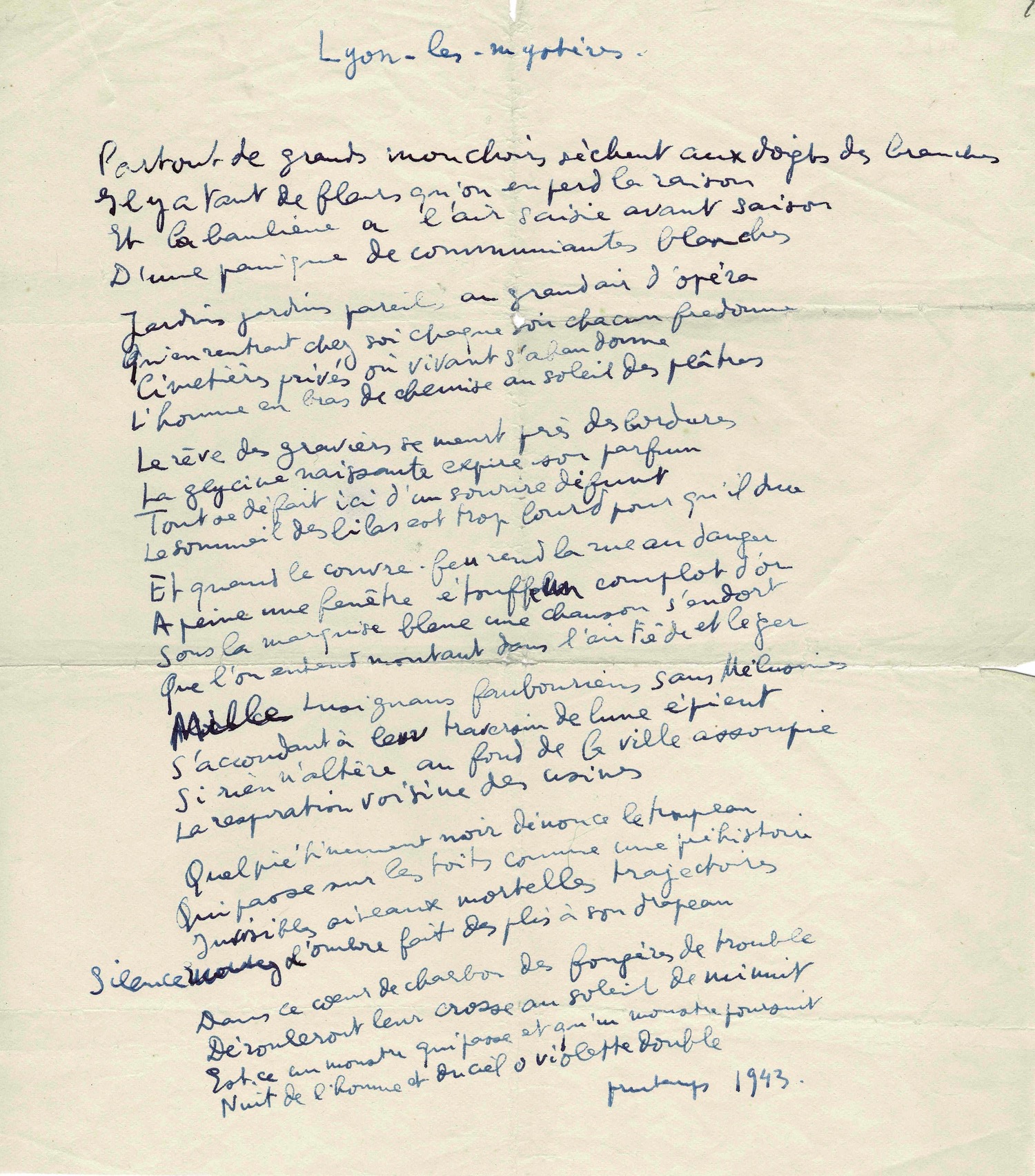Louis ARAGON (1897-1982)
Autograph poem – Lyon-les-mystères.
One page in-4° on fine paper. Fragility at the folds.
[Lyon] Spring 1943.
_________________________________________________________
Everywhere large handkerchiefs dry on the fingers of the branches / There are so many flowers that we lose our minds / And the suburbs seem seized before the season / From a panic of white communicants
Gardens gardens like the great opera aria / That everyone hums when returning home each evening / Private cemeteries where living abandons itself / The man in his shirtsleeves in the sun of the plasters
The dream of gravel dies near the borders / The nascent wisteria expires its perfume / Everything here is undone by a dead smile / The sleep of the lilacs is too heavy for it to last
And when the curfew makes the street dangerous / Barely a window stifles a golden plot / Under the blue canopy a song falls asleep / That we hear rising in the warm and light air
A thousand suburban Lusignans without Melusines / Leaning on their spying moon bolster / If nothing changes in the depths of the sleeping city / The neighboring breathing of the factories
What trampling denounces the herd / Which passes over the roofs like a prehistory / Invisible birds, deadly trajectories / Silence the shadow folds its flag
In this heart of coal ferns of trouble / Will unfurl their crooks in the midnight sun / Is it a monster that passes and that a monster pursues / Night of man and of the sky oh double violet
Spring 1943
_________________________________________________________
Written in the spring of 1943, in Lyon, this poignant text is part of the poet's superb collection, La Diane Française , published in 1946. The said collection, a tragic hymn to the National Resistance and odes to lost loves, remains considered the poetic quintessence of Louis Aragon.
The French rout against Nazi Germany led Aragon to Périgueux. Captured, he managed to escape, took refuge in the free zone and met Pierre Seghers (1940) then Henri Matisse (1941). He became involved in politics and participated in the Resistance by creating with Elsa Triolet the National Committee of Writers for the South Zone and the newspaper La Drôme enarmes . He also committed himself through his poems, published underground, in which the love of women ( Les Yeux d'Elsa , 1942) joined the love of the homeland ( Le Musée Grévin , 1943; La Rose et le Réséda , 1944; There is no happy love ).

